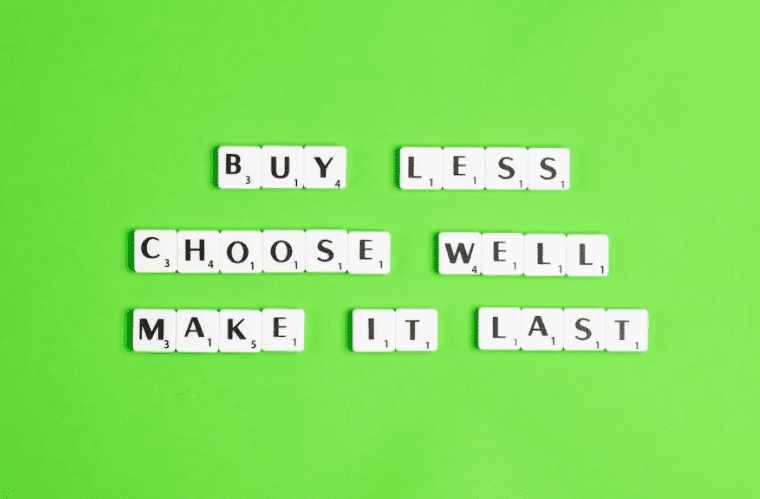Why Good PR Is Your Brand’s Best Defense (and Offense)
We used to be all about influencers telling everyone what to buy.
But a new trend is shaking things up: de-influencing.
Some creators are actually telling their followers what not to buy, and are calling out products that are overhyped or just unnecessary. This shift is especially important for brands in the Philippines, where TikTok and Instagram are huge for discovering new products–or discovering new things that will make us drop it.
So, what does this mean for your marketing? Should you stop working with influencers? Not exactly. But your approach definitely needs to change.
What Is ‘De-Influencing’?
Deinfluencing is a fast-growing social media trend focused on encouraging people to avoid buying unnecessary products (Chokrane, 2023). Unlike traditional influencers who promote products, deinfluencers advise their followers on what not to buy, often due to price, safety, or ethical concerns. This approach creates a unique influencer niche marked by honesty and trustworthiness, contrasting with the typical brand-driven endorsements.
Filipino consumers care deeply about trust, authenticity, and getting the best value for their money, especially in today’s economy. Word-of-mouth still carries huge weight, and with over 53 million TikTok users in the country, one viral de-influencing video can seriously impact your brand’s reputation and sales.
In a market that once thrived on budol marketing, buyers are now more cautious. They’re starting to ask: “Is this product really worth it?” or “Is the influencer genuinely recommending it—or just getting paid?”
It’s a clear signal that brands need to be more transparent, honest, and in tune with what consumers truly care about.
How to Adapt Your Marketing Strategy
1. Tell Honest, Transparent Stories that Connect
Today’s consumers aren’t just buying products—they’re buying into the story behind them. They want to know where it was made, what ingredients were used, how ethically the suppliers and workers were treated in the production, and what value it brings beyond the price.
Work with your Public Relations agency to craft stories that are real, relatable, and rooted in your values. When customers feel included in your brand’s journey, they’re more likely to trust, and stick with you.
2. Influencers Are Out, Advocates Are In
Instead of depending only on big-name influencers, try a more down-to-earth approach. Team up with real customers or micro-influencers who actually use and love your product, encourage user-generated content (UGC) that feels natural and relatable, and highlight honest reviews and testimonials—even if they’re not perfectly polished.
Your PR agency can help you find and connect with these authentic voices, so your brand feels more real and trustworthy to your audience.
3. Invest in Social Listening
Stay on top of what people are saying about your brand, especially the not-so-good stuff. Use free or paid tools to track mentions on TikTok and Instagram, the tone of comments, and conversations happening in local forums.
A PR agency can help you monitor and make sense of all this, so if a de-influencing post calls out your brand, you can respond quickly and thoughtfully before it escalates.
4. Value Over Virality
Rather than making big, flashy promises in your ads, focus on what really matters, such as real product benefits backed by facts, genuine stories from happy customers, strong after-sales support, and a sense of community. This builds trust, which is key in avoiding de-influencing backlash.
5. Respond Wisely, Not Emotionally
If your brand gets called out, don’t panic. Instead, respond calmly and professionally, clarify issues without sounding too defensive, and use the opportunity to reinforce your values.
Your PR agency plays a key role here, helping you handle the situation with care, and craft responses that protect your reputation.
Building Reputation, Not Just Buzz
Amid de-influencing, managing how people see your brand takes real skill. A PR and integrated marketing communications (IMC) agency can monitor conversations and media mentions, craft trust-building narratives around your products, manage crises when negative content goes viral, and help you shift from hype to long-term reputation building.
At the end of the day, strong PR isn’t just your best defense, it’s also your smartest way to grow.
De-influencing doesn’t mean influencer marketing is over, it’s a wake-up call. That means being more honest, delivering real value, partnering with authentic voices, and strengthening PR strategies.
By teaming up with NGP IMC, we can help you protect your reputation, stay ahead of changing consumer attitudes, and keep thriving no matter what trends come and go. Contact us today.

Amy Ruth Valenzuela is a graduate of Far Eastern University, where she earned a Bachelor of Arts in Communication. With a strong passion for communications and media relations, Ruth has developed a diverse skill set that includes journalism, scriptwriting, events and production management, risk management, social media marketing, and layout and graphic design. Her experience in these areas has shaped her approach to storytelling and content creation, driving a commitment to excellence in every project. Ruth is dedicated to leveraging her expertise to create impactful narratives and foster meaningful connections in the industry.


